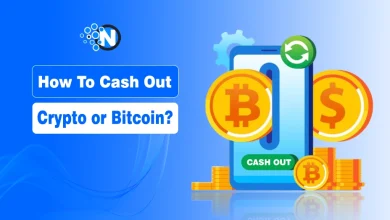How Crypto is Leading the Privacy Movement Online

In the online space, privacy has become one of the most serious issues. This is after years of scandal, such as the Cambridge Analytica event, and growing awareness of how various corporations collect and misuse our personal data.
In response to this, many consumers are taking proactive steps to stay stealthy online, including using virtual private networks, privacy browsers, and many more. Cryptocurrency is at the center of these efforts.
In this blog post, you will learn how this asset class has proven itself to be a valuable tool for online privacy in certain ways.
Crypto and Online Privacy
When most people hear the word crypto, they think of money, trading, or maybe even wild price swings. But here’s the twist: crypto is quietly becoming one of the biggest champions of online privacy.
Think about it, everywhere we go online, someone’s watching. Social media tracks our clicks, banks monitor our spending, and advertisers know us better than we know ourselves. Crypto steps in with a different promise: what if you could move, share, and interact online without leaving a trail?
That’s the heart of the privacy movement, and crypto is leading the charge.

Why Privacy Matters More Than Ever
We live in a world where every click, purchase, and message is tracked. Big tech companies monetize our data, governments push surveillance laws, and even financial institutions demand more transparency. But privacy isn’t about hiding, it’s about protecting your freedom to choose.
Crypto is leading this charge by offering tools that:
- Mask transaction details (amounts, senders, receivers).
- Enable anonymous payments without linking to your identity.
- Support decentralized apps (dApps) that don’t harvest personal data.
In fact, 2026 is being called the year of pragmatic privacy in crypto, with projects like Canton and Zcash working on compliant yet private solutions.
Ways Crypto is Leading the Privacy Movement Online
No-KYC processes
For a lot of users, the breakdown in privacy online starts with signing up for the various services. Many of them, such as betting sites, social media sites, and so on, require in-depth Know-Your-Customer (KYC) processes. The issue with these is that signing up for these platforms requires disclosure of sensitive information, such as a government ID, proof of address, banking details, and much more. This is one of the first instances where cryptocurrency comes in as a facilitator for various transactions without KYC processes.
Take the world of betting, for example. New Bitcoin casinos often allow users to play the various games without needing to sign up. In this case, the user only has to connect their digital asset wallet, after which they can begin playing their games. By removing the KYC process, privacy is significantly preserved. Then there are things like blockchain-powered social media platforms that often don’t require a proper sign-up. As such, more users can enjoy their services in stealth mode.
Privacy Tokens
One of the biggest ethos of the blockchain world has been privacy, and this has seen the emergence of privacy cryptocurrencies. Tokens like Zcash and Monero are specifically designed to be virtually untraceable. This means that no one, not even a blockchain developer, can determine what activities are completed with a token.
Many more people are turning to privacy tokens to complete their transactions. This means that their privacy is further preserved. As the topic of online safety becomes even more discussed, we can expect privacy tokens to see greater use, along with other tools like VPNs.
Blockchain Evolution
Many more blockchains themselves are switching to more privacy-preserving features in a bid to support their users. Litecoin, for example, underwent an upgrade that means that complex transactions cannot be distinguished from simple ones.
In essence, anyone watching the blockchain will have a harder time tracking anyone’s activities, and this has become a big draw. Some blockchain lovers have suggested that more networks will offer this option, creating an alternative for users who don’t want their transactions visible to others.
Mixers and Address Generators
In the same vein of protecting two transactions from prying eyes, more users are turning to token mixers and address generators. The former essentially scrambles tokens, making it impossible to tell where any token originated. Token mixers did get a bit of bad PR in the past, due to sanctions placed on services like Tornado Cash.
Now, however, many sanctions have been lifted, and more users are returning to them. The latter essentially generates a new address for every crypto transaction, which means it is harder to track where tokens are going. As cryptocurrency use continues to rise worldwide, more people will look into this option to enjoy privacy.
Final Thoughts
While blockchains pride themselves on transparency, it does not have to spell the end of privacy. As we have highlighted in this article, cryptocurrency is actually at the forefront of privacy-centric movements online, along with things like privacy browsers, VPNs, and much more. The culture of online safety is becoming more prevalent, and as time passes, many of these features will become mainstream.




